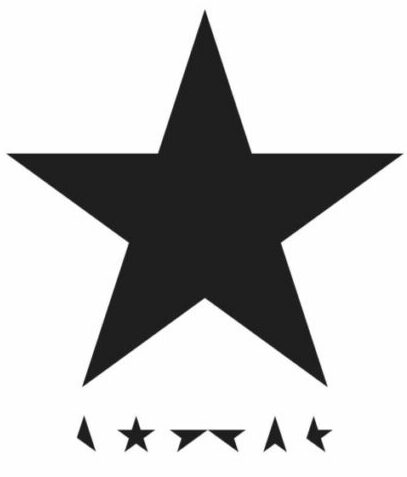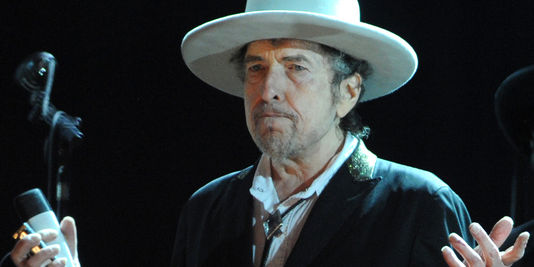Bob Dylan n’est finalement pas venu en personne recevoir son prix Nobel de littérature à l’académie de Stockholm. L’ambassadrice des Etats-Unis a lu son discours et Patti Smith a interprété avec émotion A Hard Rain’s A-Gonna Fall :
Oh, where have you been, my blue-eyed son?
And where have you been my darling young one?
I’ve stumbled on the side of twelve misty mountains
I’ve walked and I’ve crawled on six crooked highways
I’ve stepped in the middle of seven sad forests
I’ve been out in front of a dozen dead oceans
I’ve been ten thousand miles in the mouth of a graveyard
And it’s a hard, it’s a hard, it’s a hard, and it’s a hard
It’s a hard rain’s a-gonna fall.Oh, what did you see, my blue eyed son?
And what did you see, my darling young one?
I saw a newborn baby with wild wolves all around it
I saw a highway of diamonds with nobody on it
I saw a black branch with blood that kept drippin’
I saw a room full of men with their hammers a-bleedin’
I saw a white ladder all covered with water
I saw ten thousand talkers whose tongues were all broken
I saw guns and sharp swords in the hands of young children
And it’s a hard, it’s a hard, it’s a hard, and it’s a hard
It’s a hard rain’s a-gonna fall.And what did you hear, my blue-eyed son?
And what did you hear, my darling young one?
I heard the sound of a thunder that roared out a warnin’
I heard the roar of a wave that could drown the whole world
I heard one hundred drummers whose hands were a-blazin’
I heard ten thousand whisperin’ and nobody listenin’
I heard one person starve, I heard many people laughin’
Heard the song of a poet who died in the gutter
Heard the sound of a clown who cried in the alley
And it’s a hard, it’s a hard, it’s a hard, it’s a hard
And it’s a hard rain’s a-gonna fall.Oh, what did you meet my blue-eyed son ?
Who did you meet, my darling young one?
I met a young child beside a dead pony
I met a white man who walked a black dog
I met a young woman whose body was burning
I met a young girl, she gave me a rainbow
I met one man who was wounded in love
I met another man who was wounded in hatred
And it’s a hard, it’s a hard, it’s a hard, it’s a hard
And it’s a hard rain’s a-gonna fall.And what’ll you do now, my blue-eyed son?
And what’ll you do now my darling young one?
I’m a-goin’ back out ‘fore the rain starts a-fallin’
I’ll walk to the depths of the deepest black forest
Where the people are a many and their hands are all empty
Where the pellets of poison are flooding their waters
Where the home in the valley meets the damp dirty prison
And the executioner’s face is always well hidden
Where hunger is ugly, where souls are forgotten
Where black is the color, where none is the number
And I’ll tell and speak it and think it and breathe it
And reflect from the mountain so all souls can see it
And I’ll stand on the ocean until I start sinkin’
But I’ll know my song well before I start singing
And it’s a hard, it’s a hard, it’s a hard, and it’s a hard
It’s a hard rain’s a-gonna fall.
Banquet speech by Bob Dylan given by the United States Ambassador to Sweden Azita Raji, at the Nobel Banquet, 10 December 2016.
Good evening, everyone. I extend my warmest greetings to the members of the Swedish Academy and to all of the other distinguished guests in attendance tonight.
I’m sorry I can’t be with you in person, but please know that I am most definitely with you in spirit and honored to be receiving such a prestigious prize. Being awarded the Nobel Prize for Literature is something I never could have imagined or seen coming. From an early age, I’ve been familiar with and reading and absorbing the works of those who were deemed worthy of such a distinction: Kipling, Shaw, Thomas Mann, Pearl Buck, Albert Camus, Hemingway.
These giants of literature whose works are taught in the schoolroom, housed in libraries around the world and spoken of in reverent tones have always made a deep impression. That I now join the names on such a list is truly beyond words.
I don’t know if these men and women ever thought of the Nobel honor for themselves, but I suppose that anyone writing a book, or a poem, or a play anywhere in the world might harbor that secret dream deep down inside. It’s probably buried so deep that they don’t even know it’s there.
If someone had ever told me that I had the slightest chance of winning the Nobel Prize, I would have to think that I’d have about the same odds as standing on the moon. In fact, during the year I was born and for a few years after, there wasn’t anyone in the world who was considered good enough to win this Nobel Prize. So, I recognize that I am in very rare company, to say the least.
I was out on the road when I received this surprising news, and it took me more than a few minutes to properly process it. I began to think about William Shakespeare, the great literary figure. I would reckon he thought of himself as a dramatist. The thought that he was writing literature couldn’t have entered his head. His words were written for the stage. Meant to be spoken not read. When he was writing Hamlet, I’m sure he was thinking about a lot of different things: « Who’re the right actors for these roles? » « How should this be staged? » « Do I really want to set this in Denmark? » His creative vision and ambitions were no doubt at the forefront of his mind, but there were also more mundane matters to consider and deal with. « Is the financing in place? » « Are there enough good seats for my patrons? » « Where am I going to get a human skull? » I would bet that the farthest thing from Shakespeare’s mind was the question « Is this literature? »
When I started writing songs as a teenager, and even as I started to achieve some renown for my abilities, my aspirations for these songs only went so far. I thought they could be heard in coffee houses or bars, maybe later in places like Carnegie Hall, the London Palladium. If I was really dreaming big, maybe I could imagine getting to make a record and then hearing my songs on the radio. That was really the big prize in my mind. Making records and hearing your songs on the radio meant that you were reaching a big audience and that you might get to keep doing what you had set out to do.
Well, I’ve been doing what I set out to do for a long time, now. I’ve made dozens of records and played thousands of concerts all around the world. But it’s my songs that are at the vital center of almost everything I do. They seemed to have found a place in the lives of many people throughout many different cultures and I’m grateful for that.
But there’s one thing I must say. As a performer I’ve played for 50,000 people and I’ve played for 50 people and I can tell you that it is harder to play for 50 people. 50,000 people have a singular persona, not so with 50. Each person has an individual, separate identity, a world unto themselves. They can perceive things more clearly. Your honesty and how it relates to the depth of your talent is tried. The fact that the Nobel committee is so small is not lost on me.
But, like Shakespeare, I too am often occupied with the pursuit of my creative endeavors and dealing with all aspects of life’s mundane matters. « Who are the best musicians for these songs? » « Am I recording in the right studio? » « Is this song in the right key? » Some things never change, even in 400 years.Not once have I ever had the time to ask myself, « Are my songs literature? »
So, I do thank the Swedish Academy, both for taking the time to consider that very question, and, ultimately, for providing such a wonderful answer.My best wishes to you all,
Bob Dylan

